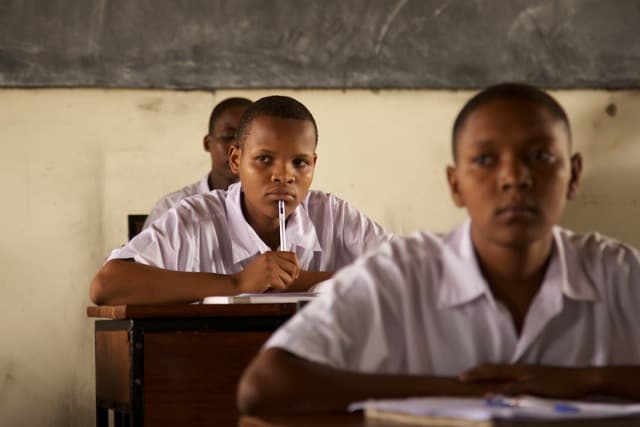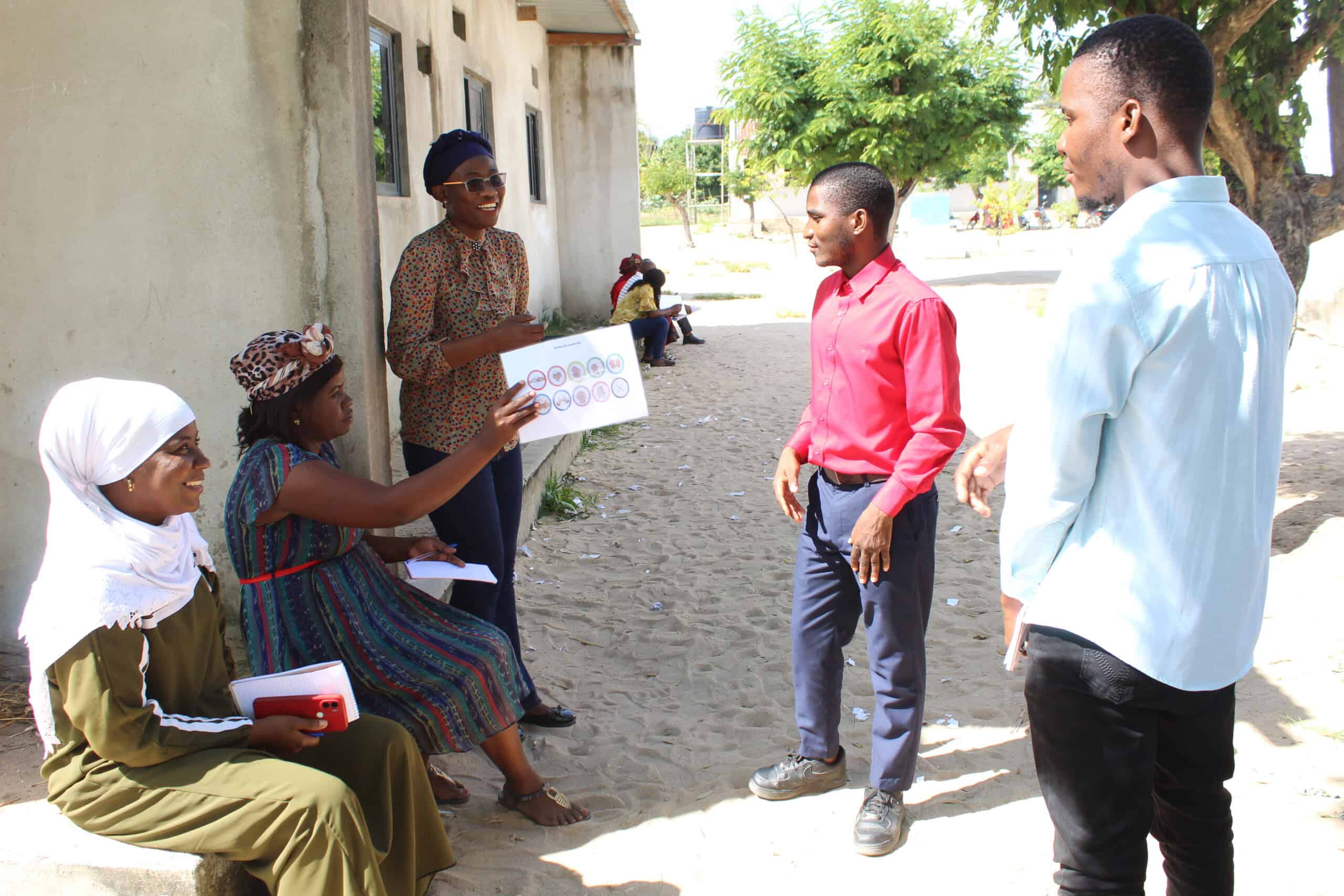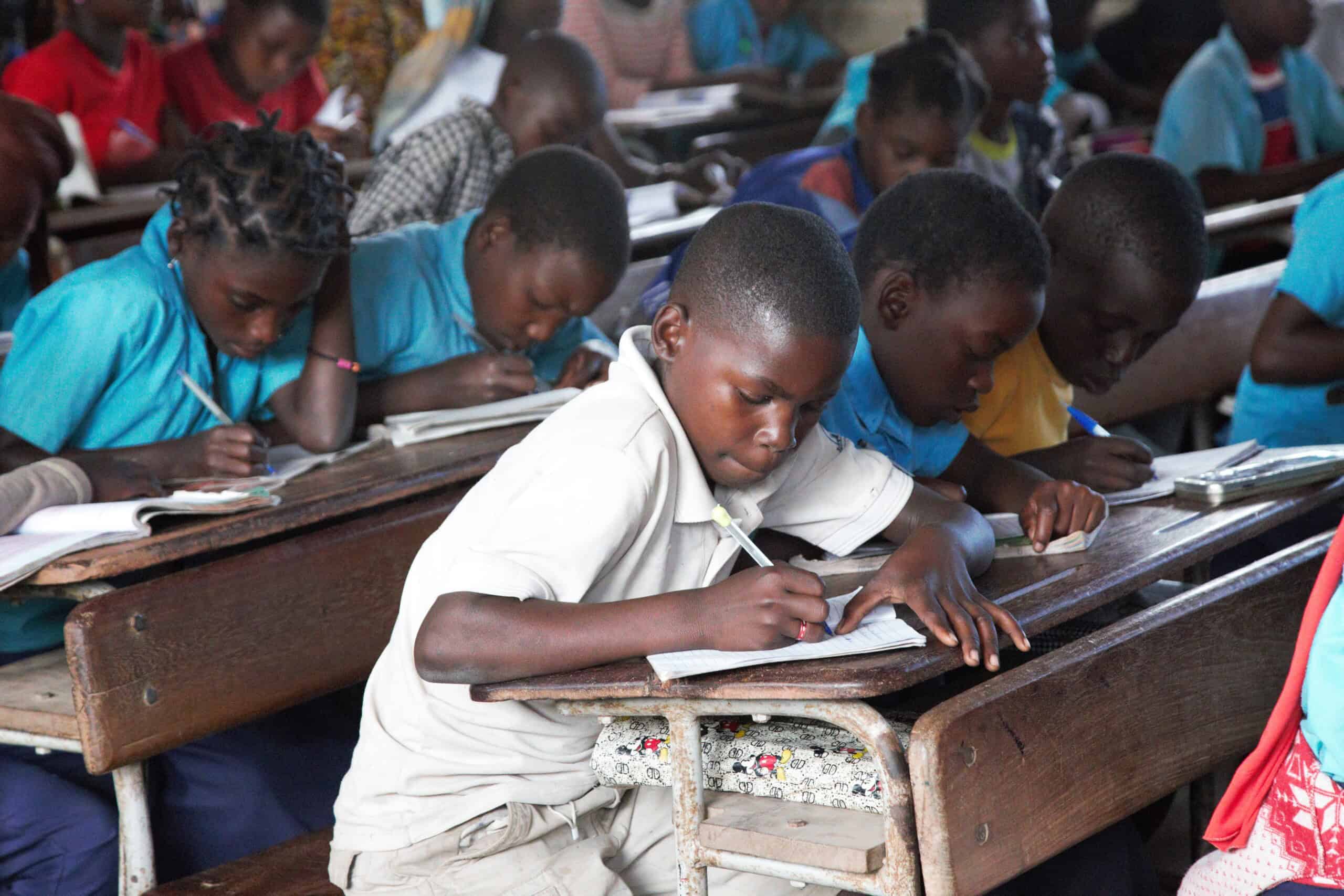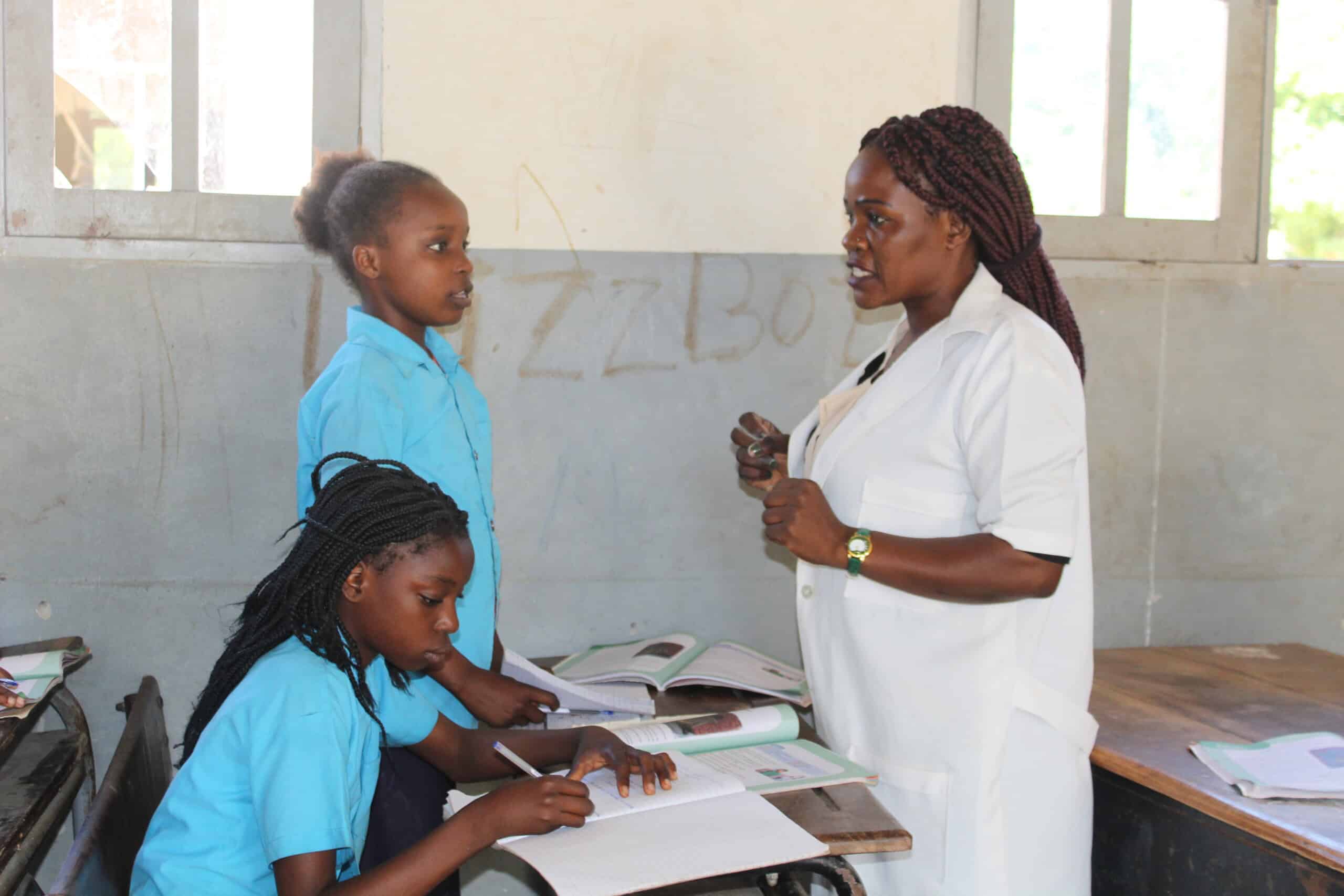Education is critical to individual development, improved health, economies, human rights, and gender equity. Millions of people, however, lack basic literacy, numeracy, and life skills.
We understand the importance of developing skills at an early age, and many of our programs focus on early childhood education and early-grade learning (reading and math). We also work to improve upper primary- and secondary-level learning outcomes, and to ensure basic skills among adults and out-of-school youth.
Our basic education programming includes initiatives to strengthen national education policies and systems; build teacher capacity; improve school management; encourage caregivers and communities to support student learning; develop and distribute high-quality teaching and learning materials; and assess student learning, teacher behavior change, and intervention impact.
We help governments and partners incorporate evidence-based approaches into teacher training practices; design school-based teacher coaching and support systems; and develop accessible instructional materials such as decodable and leveled readers and teacher guides. We also train stakeholders to use self-made, low-cost teaching and learning materials to ensure sustainability. Where possible, we invest in the adaptation or development of context-appropriate educational technology.





